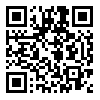Volume 6, Issue 3 (Vol6,No3(21) 2025)
2025, 6(3): 0-0 |
Back to browse issues page
Ethics code: 609/74864/631
Download citation:
BibTeX | RIS | EndNote | Medlars | ProCite | Reference Manager | RefWorks
Send citation to:



BibTeX | RIS | EndNote | Medlars | ProCite | Reference Manager | RefWorks
Send citation to:
dolati A, dehgani H, heydarilaghab E. (2025). Design and Evaluation of the Effectiveness of a Self-Care Behavior Promotion Package in Elementary School Students. Journal of Childhood Health and Education. 6(3),
URL: http://jeche.ir/article-1-326-en.html
URL: http://jeche.ir/article-1-326-en.html
1- Assistant Professor, Department of Educational Management, Farhangian University, P.O. Box 14665-889 Tehran, Iran.
2- Ph.D. in Curriculum Planning, Department of Educational Sciences, Bu-Ali Sina University, Hamadan, Iran
3- Assistant Professor, Department of Theology, Farhangian University, P.O. Box 14665-889 Tehran, Iran
2- Ph.D. in Curriculum Planning, Department of Educational Sciences, Bu-Ali Sina University, Hamadan, Iran
3- Assistant Professor, Department of Theology, Farhangian University, P.O. Box 14665-889 Tehran, Iran
Abstract: (795 Views)
Background and Aim: The present study was conducted with the aim of designing and evaluating the effectiveness of a package to promote self-care behaviors in students with an emphasis on the elementary school of Semnan.
Research Methods: A mixed research approach was used and research data was collected in two qualitative and quantitative stages. The participants in the qualitative section were 22 professors of Farhangian University of Education who were fully familiar with the discussion of self-care behaviors. The statistical population in the quantitative section included all first and second grade primary school students for girls and boys in Semnan city (60 schools and 20,600 students), who were selected from the second grade and from 60 schools, 2 schools (1 girl's school and 1 boy's school). In the qualitative section, purposive sampling was criterion-based and the sample size was determined using the theoretical saturation rule, and in the quantitative section, 56 samples (students) were selected for 16 self-care components. The cluster sampling method was a one-stage. The data collection tool in the qualitative part was a semi-guided interview and in the quantitative part, a researcher-made questionnaire. Content validity was used to examine the validity in this study. Cronbach's alpha coefficient was used to examine the reliability of the questionnaire.
Results: The results of the qualitative part of the study showed that self-care includes 16 items, including digital, financial, environmental, physical, sexual, emotional and psychological, social, spiritual, artificial, met averse, virtual social, genetic, micro biome, and sustainable, intergenerational and neurological self-care. In the quantitative part, the results of the study indicated that the educational intervention in question significantly increased the level of self-care in elementary school male and female students. In other words, it can be concluded that this educational program was effective in increasing students' self-care.
Discussion: Therefore, it can be concluded that the design and implementation of comprehensive educational programs tailored to the needs of students can be an effective step towards promoting their health and well-being in various dimensions.
Research Methods: A mixed research approach was used and research data was collected in two qualitative and quantitative stages. The participants in the qualitative section were 22 professors of Farhangian University of Education who were fully familiar with the discussion of self-care behaviors. The statistical population in the quantitative section included all first and second grade primary school students for girls and boys in Semnan city (60 schools and 20,600 students), who were selected from the second grade and from 60 schools, 2 schools (1 girl's school and 1 boy's school). In the qualitative section, purposive sampling was criterion-based and the sample size was determined using the theoretical saturation rule, and in the quantitative section, 56 samples (students) were selected for 16 self-care components. The cluster sampling method was a one-stage. The data collection tool in the qualitative part was a semi-guided interview and in the quantitative part, a researcher-made questionnaire. Content validity was used to examine the validity in this study. Cronbach's alpha coefficient was used to examine the reliability of the questionnaire.
Results: The results of the qualitative part of the study showed that self-care includes 16 items, including digital, financial, environmental, physical, sexual, emotional and psychological, social, spiritual, artificial, met averse, virtual social, genetic, micro biome, and sustainable, intergenerational and neurological self-care. In the quantitative part, the results of the study indicated that the educational intervention in question significantly increased the level of self-care in elementary school male and female students. In other words, it can be concluded that this educational program was effective in increasing students' self-care.
Discussion: Therefore, it can be concluded that the design and implementation of comprehensive educational programs tailored to the needs of students can be an effective step towards promoting their health and well-being in various dimensions.
Type of Study: Research |
Subject:
Special
Received: 2025/03/7 | Accepted: 2025/10/7 | Published: 2025/12/16
Received: 2025/03/7 | Accepted: 2025/10/7 | Published: 2025/12/16
Send email to the article author
| Rights and permissions | |
 |
This work is licensed under a Creative Commons Attribution-NonCommercial 4.0 International License. |



